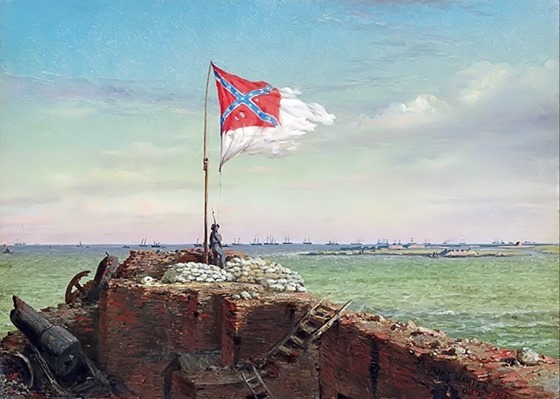October 20, Tuesday. Busy when out of the Department in collecting materials and framing the skeleton outlines of my Annual Report. Shall be so occupied for a few weeks to the neglect of my journal, which usually consumes a late evening hour, after company has gone and other labors of the day are laid aside. But the details of an annual report require personal labor and investigation which I cannot delegate to another without revision and my own examination. This takes all my time and really overtaxes me, with current duties.
There was little of interest to-day at the Cabinet. Seward, Chase, and Stanton were absent. Stanton, I am told, has gone to Tennessee.
Lee with his army has disappeared from the front. It is reported that he has torn up the rails and destroyed the bridges as he has disappeared. Meade, we are told, is in pursuit, and the press and others give him great credit for strategy; that is, he knows not what to do, and the papers and correspondents don’t know that fact, — this is strategy. He will not overtake Lee if he wants to.
I met General Sickles at the President’s to-day. When I went in, the President was asking if Hancock did not select the battle-ground at Gettysburg. Sickles said he did not, but that General Howard and perhaps himself, were more entitled to that credit than any others. He then detailed particulars, making himself, however, much more conspicuous than Howard, who was really used as a set-off. The narrative was, in effect, that General Howard had taken possession of the heights and occupied the Cemetery on Wednesday, the 1st. He, Sickles, arrived later, between five and six P.M., and liked the position. General Meade arrived on the ground soon after, and was for abandoning the position and falling back. A council was called; Meade was earnest; Sickles left, but wrote Meade his decided opinion in favor of maintaining the position, which was finally agreed to against Meade’s judgment.
Allowance must always be made for Sickles when he is interested, but his representations confirm my impressions of Meade, who means well, and, in his true position, that of a secondary commander, is more of a man than Sickles represents him, — can obey orders and carry out orders better than he can originate and give them, hesitates, defers to others, has not strength, will, and self-reliance. My impressions in regard to the late movement by Lee in front are strengthened. Meade’s falling back was a weakness. The movement on the part of Lee was a feint to cover his design of sending off troops to some other point, — I think Chattanooga, — where the Rebels are concentrating and the information received to-day that he is destroying the roads as he retreats confirms my opinion. We shall soon learn whether this strategy is Meade’s or Lee’s. It is now asserted that Meade retreated before one division of Lee’s army. This is probably a caricature rumor, and yet perhaps not much exaggeration. Others do not listen to my conjecture that more troops have gone to Chattanooga, yet it is strongly impressed upon me. The Rebels can’t afford to be defeated there. Jeff Davis has gone there, and there they must make a stand.











